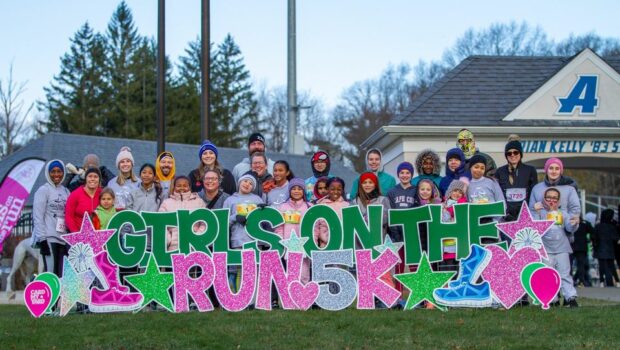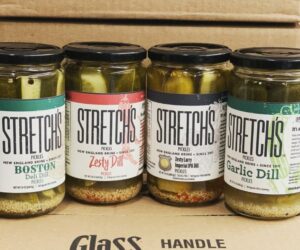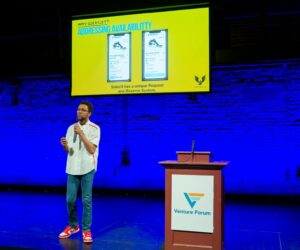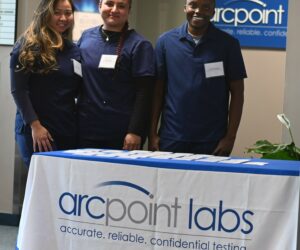by: Catherine J. Dorian
Executive Board Member, Girls on the Run Worcester County
People everywhere worry about the young. Parents and teachers wonder what their child’s future will look like amid economic uncertainties, advancements in technology, and the changing landscape of education. While social media can facilitate adolescents’ creativity and self-development, many teens report that they experience bullying and harassment on Instagram and TikTok—platforms which in less than a decade have become obligatory passports into the social stratosphere. And there’s that lingering question that may take several more years (and more than a few studies) to answer: to what extent did pandemic isolation impact children’s cognitive, social, and emotional development? And how can we make up for, or at least minimize, the impacts of lockdown on children?
Since before the pandemic, schools, parents, and community leaders have recognized the importance of creating spaces where children grow not just academically, but personally. Social emotional learning (SEL)— practices like developing self- and social-awareness, building relationships, managing oneself, and making responsible decisions—is an essential component of a child’s development. If we want to improve the social-emotional health of our youth, we need sustainable, grassroots efforts that create a lasting impact.
Such is the effort of Girls on the Run Worcester County, a nonprofit 501(c)(3). A council of Girls on the Run International, GOTR Worcester is an after-school program that combines discussion-based learning and group development with physical activity to help girls navigate life experiences. Girls meet in teams of 10 to 15 with two or three coaches. While the girls stretch, they talk about the highs and lows of their days; while they jog a lap or add distance to their practice, they learn about goal setting and how to encourage others. At the end of the season, the girls run a final 5k with other GOTR teams from their council. They celebrate with their families and coaches, whether they finished first or fifty-first. By the end of the season, GOTR participants have not only acquired tools and practices for self-reflection and self-awareness; they’ve engaged in an experience that influences their mindset and development in their most formative years.
In 2014, when Uxbridge mom and community leader Karen Spencer first heard about the GOTR curriculum, she knew that she wanted the program for her daughter. Karen got approval from GOTR headquarters to bring the program to Worcester. With the help of a few friends, including Katie Esposito, Karen was able to bring the program to 69 girls at three sites: Uxbridge, Gardner, and Northbridge.
GOTR Worcester grew. Karen became the full-time executive director, and GOTR hired Katie as a program coordinator. By 2020, 259 girls were registered for the spring program.
When schools closed just one week into the spring 2020 season, GOTR had to pause its program and refund their participants. But the skills that GOTR aims to teach—that is, how to develop confidence, self-awareness, and empathy for others—were essential. Karen and Katie were determined to keep GOTR Worcester alive.
Karen took a pay cut so that GOTR could keep their home office in Whitinsville. They raised funds with a virtual 5k and golf tournament, and in Fall 2020, GOTR was able to offer its program to nine teams and 92 girls, while modifying the curriculum to meet the CDC’s guidelines. In the same season, GOTR’s executive board held a fundraising campaign, where donations were matched by anonymous, private donors and triple matched by GOTR’s national partner, adidas. By Spring 2021, GOTR was able to return to many of the schools that they were serving pre-lockdown. That season, 217 girls participated in GOTR’s program.
Like the rest of Worcester County, GOTR endured another variant and another wave of restrictions. Then, GOTR Worcester received a $29,000 pilot grant from the Women’s Foundation of Boston—a gift that allowed us to offer scholarships to eight Worcester Public Schools teams. By Spring 2022, 369 girls returned to run with the program that helped them find connection and confidence. Thanks to the Women’s Foundation of Boston, GOTR was able to fully recover its pre-pandemic participation.
The spring 2022 season proved to be pivotal for GOTR. Katie suggested that we host our end-of-season 5k at Polar Park. Thanks to a sponsorship from FLEXcon and our robust network of volunteers, we did. By September of the same year, we were able to hire a new program coordinator, Sarah Viadero, and by December, we welcomed Katie Bullied as our new Marketing Coordinator. Thanks to adidas, which again triple-matched our funds, our executive board’s end-of-year fundraiser gleaned another $36,000.
The Women’s Foundation of Boston continues to show their support for our council. They’ve since granted GOTR Worcester another $80,000 for the 2022 – 2023 fiscal year, forging a relationship that has elevated GOTR Worcester’s commitment to diversifying our participants, coaches, and board members.
“They believe in the human capital component of this,” says Karen. “They’re somebody that believes in our work, and they know that resources are not as plentiful here in Worcester as they are in Boston.”
In addition to the funds we received from the Women’s Foundation, we’ve also accepted gifts from the United Way of North and South Central Massachusetts—funds which help us provide scholarships to girls who may not otherwise be able to participate.
With the generosity of our partner’s and Worcester’s spirit of inclusion, GOTR has achieved its latest milestone: for this fiscal year, GOTR will serve 71 teams, 240 coaches, and a total of 1,008 girls.
GOTR councils across the nation have struggled to regain the participants that they lost during the pandemic. Karen, Katie, and the rest of the GOTR Worcester team continue to see their numbers increase.
“We hustled,” Karen says—and anyone who visits the office in Whitinsville will sense the palpable energy that fuels the GOTR team. But Karen and Katie attribute much of their success to the community of Worcester.
“We’ve solidified these relationships,” says Katie, who is now GOTR Worcester’s Program Director. “Whether it’s with parents, whether it’s with coaches, or whether it’s with funders. Our council has a unique relationship with Worcester.”
Worcester—a city of grit, vibrance, and diversity—is in many ways the ideal place for a program like GOTR to thrive. Our council continues to receive funding that allows us to offer more scholarships to girls who otherwise may not be able to participate in the program. Thanks to a recent grant from Rite Aid, we’re now able to translate our documents and marketing materials into multiple languages so that we can serve girls who represent many communities in Worcester. We’re building a network of new board members, coaches, and volunteers, so that the girls we’re serving see themselves represented in the adults who serve them.
It’s an opportune time for Worcester, and it’s an opportune time for GOTR Worcester.
GOTR Worcester is happy to again host our Spring 5k on Saturday, June 10, at Polar Park—a central location where we can honor our city and where girls can feel seen in their community. Between our participants, coaches, families, volunteers, and community runners, we’re expecting over 2,000 people to attend.
Interested in running, volunteering, sponsoring, or coming to cheer us on? You can find out more at gotr-worc.org/5k. You can also visit https://www.gotr-worc.org/donate to contribute to our growing council that helps girls thrive.





